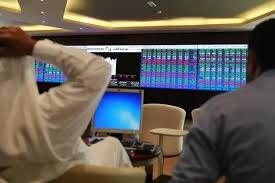Gulf Stock Markets Advance Despite Regional Conflict After U.S. Joins Israel’s Strike
On June 23, 2025, Gulf Cooperation Council (GCC) financial markets posted measured gains, even as the geopolitical landscape across the Middle East grew more volatile due to heightened U.S. and Israeli military action against Iran. In a complex trading session shadowed by conflict, investor confidence in the region appeared cautiously optimistic, underpinned by energy sector strength, sovereign policy control, and belief in potential diplomatic breakthroughs.
Saudi Arabia’s benchmark Tadawul All Share Index (TASI) rose approximately 0.7%, led by strong performances in energy-linked firms such as Aramco, Al Rajhi Bank, and construction and mining sector giants. Investors interpreted the joint U.S.–Israel military operations as a possible prelude to diplomatic resolution, with growing sentiment that a strong show of force might deter Iran from further escalation, opening a narrow window for high-level negotiations.
Energy Stocks Lead the Rally
The rally in energy sector stocks followed gains in Brent crude, which remained volatile but stable near the $76–78 per barrel range. Analysts in Riyadh noted that controlled geopolitical tension, while undesirable, can create a risk premium that benefits well-positioned oil producers, provided that full-scale conflict is avoided. Market observers suggested that GCC producers could capitalize on stable but elevated oil prices, particularly if they maintain export flow and avoid becoming entangled in regional militarization.
Al Rajhi Bank, often viewed as a bellwether for investor sentiment in the Kingdom, climbed nearly 1.2%, while state-linked infrastructure firms saw gains amid ongoing Vision 2030 investment diversification strategies. With higher oil revenues padding sovereign wealth funds, governments across the GCC are injecting windfall profits into non-oil sectors, bolstering long-term growth ambitions even as short-term risk looms.
Tensions Simmer Beneath the Surface
Despite the day's modest gains, investor caution remains high. Tanker insurance premiums in the Gulf surged amid fears of potential retaliatory strikes by Iran, particularly targeting maritime assets and shipping lanes through the Strait of Hormuz. While no direct attacks on tankers have been reported, heightened security around Saudi, Emirati, and Qatari ports is now standard.
Gulf governments responded swiftly. Authorities in Dubai, Dammam, and Muscat have increased port security, while industrial zones near critical oil and gas infrastructure have been placed on high alert. Defense ministers in Bahrain and Kuwait issued statements reaffirming regional stability and neutrality, although intelligence agencies remain on alert for cyber-attacks or sabotage attempts against financial systems or infrastructure.
Global Funds Monitor GCC Exposure
International investors tracking the MSCI Frontier and Emerging Markets indices are paying close attention to developments in the Gulf. With the U.S. and Iran inching toward a broader confrontation, global capital flows into the GCC remain fluid—attractive due to high dividend yields and energy pricing, yet vulnerable to external shock.
Policy decisions, particularly from OPEC+, are now viewed as critical determinants of investor confidence. Analysts believe any hint of coordinated supply cuts or production adjustments could offer the Gulf additional pricing leverage, provided regional facilities remain undisturbed. However, any direct involvement of a GCC state in the conflict could trigger capital flight, particularly if cross-border conflict or terrorist retaliation materializes.
Vision 2030 and Risk Management
Riyadh’s Vision 2030 initiative continues to be a stabilizing narrative amid regional turmoil. Backed by increased state-owned enterprise (SOE) performance and sovereign reinvestment from oil gains, diversification efforts across tourism, renewable energy, logistics, and AI technology offer investors exposure beyond hydrocarbons. This broader economic base helps cushion volatility tied to geopolitical risk—but remains vulnerable to prolonged instability.
Gulf financial strategists emphasize that while gains this week reflect confidence in containment, the mood could shift rapidly. Should Iran retaliate via proxy groups, particularly in Yemen, Syria, or Iraq, or launch cyber-disruption campaigns against Gulf banks or logistics firms, the market could reverse sharply. Likewise, any accidental drift of a GCC state into military confrontation, even through allied intelligence sharing or logistical support, could raise international scrutiny and impact valuations.
The 48-Hour Watch Window
Analysts across Dubai, Doha, and Manama agree: the next 48 hours will be decisive. With U.S. airstrikes ongoing and Iranian officials promising a "measured but firm response," GCC markets face an unpredictable balance between geopolitical opportunity and systemic vulnerability.
For now, regional equities remain cautiously buoyant, reflecting belief in controlled confrontation and hopes for backchannel diplomacy to bring about a de-escalation. Yet the faith of the Gulf's markets—and its long-term ambitions—hinges on whether the conflict resolves through negotiations or sinks further into instability.
News Source: https://www.reuters.com/world/middle-east/gulf-stock-markets-advance-despite-regional-conflict-2025-06-23/ reuters.com+1reuters.com+1








